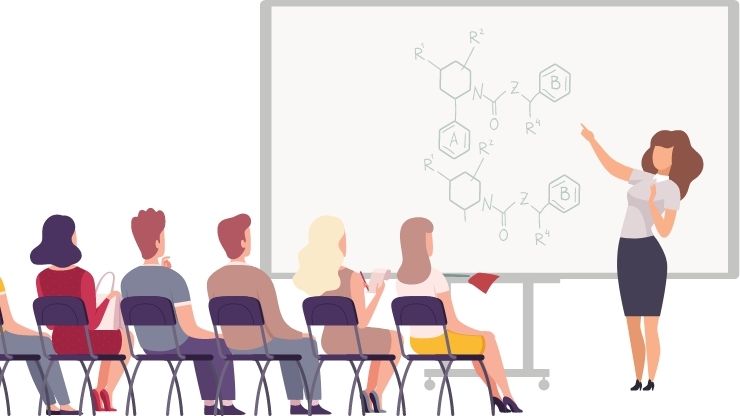
To become a substitute teacher in Illinois, professionals must obtain a substitute license. This is a relatively straight-forward process. These certifications last several years, and have basic requirements outlined on ISBE’s (Illinois State Board of Education) website. This license can be a way for teachers in transition to develop or maintain a connection to the classroom while they are completing requirements for their standard or alternative teaching certifications.
Illinois provides a full list of requirements for licensures through the State Board’s website.
According to ISBE, “If you hold a valid professional educator license, educator license with stipulations or paraprofessional license and hold a bachelor’s degree, you are qualified to be a substitute teacher.” There are no subject requirements for the major of a completed bachelor’s degree.
Both short-term and traditional are available. Short-term substitute licensing has fewer requirements than the traditional license. Regardless of which license is obtained, a substitute may only teach for a maximum of five days in a row. While the traditional substitute teacher license is valid for five years and can be renewed with a $50 registration fee and a $50 application fee (reimbursable), the short-term license is only valid until June 30, 2023; it cannot be renewed.
Because short-term licensing is available for those with an associate degree or at least 60.00 credit hours of undergraduate coursework (100-level or higher) at an accredited institution (in addition to a district-run training program), it is an excellent way for those completing a bachelor’s degree to gain classroom experience. Substitute teachers can also serve as a paraprofessional. There are no examination requirements for either of these licenses. For the traditional license, a bachelor’s degree is required.
Short-term licensing is similar in requirements to the paraprofessional licensure. Paraprofessionals function as educational aids for students in special education. It is also frequently acquired by educators in transition to other forms of licensure, though not always, as the role of the paraprofessional is a career path in and of itself. Paraprofessional licensure has a minimum age requirement of 19, and, depending on certain test scores, may only require a high school diploma. Typically, this licensure requires at least an associate degree or 60 credit hours of undergraduate coursework (100-level or higher). If educators have a paraprofessional license and a bachelor’s degree, they are qualified to be a substitute teacher.
In all cases, you will need to submit your academic records, including official transcripts through the ISBE online credential management system (www.isbe.net/ELIS).
For educators making an even greater move across national borders, this will require an international credential evaluation.
Recognized by the Illinois State Board of Education, Scholaro is prepared to help you ensure that you can get the credit you deserve for your educational achievements. An endorsed member of AICE, Scholaro Inc. follows the national guidelines of our organization to provide our clients with accurate and comprehensive evaluation of their educational credentials.
Additional information: https://www.isbe.net/Documents/how-become-sub-teacher.pdf

